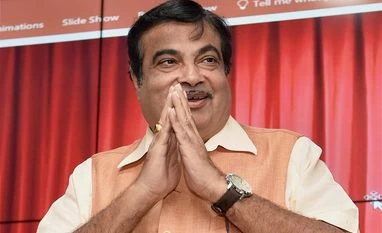The projects will cost the government around Rs 40,000 crore and will be launched by Prime Minister Narendra Modi, he said.
Gadkari, who held a review meeting with senior officials of the water resources ministry this evening, said he would hold meetings with chief ministers of the states where the projects will be implemented and resolve various issues.
Also Read
He said the government will use the latest technology in Ken-Betwa, Par-Tapi-Narmada and Damanganga-Pinjal river inter-linking projects.
Besides, the government aims to begin work on Pancheshwar and North Koel dams.
"These five projects will help irrigate lakhs of hectares. These projects are almost ready. I am fine-tuning it. I will try to see the actual work begins in next three months," he told reporters after the meeting here.
On Ken-Betwa, considered as the first river inter-linking project, Gadkari said that the project would help irrigate around 15 lakh acres of area. With use of drip irrigation, he added, the total area to be irrigated would swell from 25 lakh to 30 lakh acres.
The project envisages fulfilling water needs of Bundelkhand region, which falls in Uttar Pradesh and Madhya Pradesh. The minister said the project, when completed, will have bearing on socio-economic life of people in the region.
"This will help end poverty in Bundelkhand. We intend to complete all the projects in transparent and time-bound manner using new technologies," he added.
Gadkari has decided to convene a meeting with the chief ministers of Uttar Pradesh and Madhya Pradesh over the Ken- Betwa river inter-linking project.
The Par-Tapi-Narmada and Damanganga-Pinjal river inter- linking projects, estimated to cost Rs 16,000 crore, are envisaged to meet the water needs to Maharashtra and Gujarat.
The minister said the India-Nepal bilateral Pancheshwar multipurpose project in Uttarakhand will help mitigate floods, besides generating electricity and irrigating land.
The Centre had last month given its nod to complete the remaining works of the North Koel reservoir project in Bihar and Jharkhand at an estimated expenditure of over Rs 1,622 crore.
Once completed, the project will create annual irrigation potential for 91,917 hectares land in Bihar and 19,604 hectares in Jharkhand.
)